Brake Pipe Replacement RWD (Front)
Removal Procedure
- Raise the vehicle. Refer to Lifting and Jacking the Vehicle in General Information.
- Remove the brake pipe retainers as necessary.
- Remove the brake pipe from the vehicle.
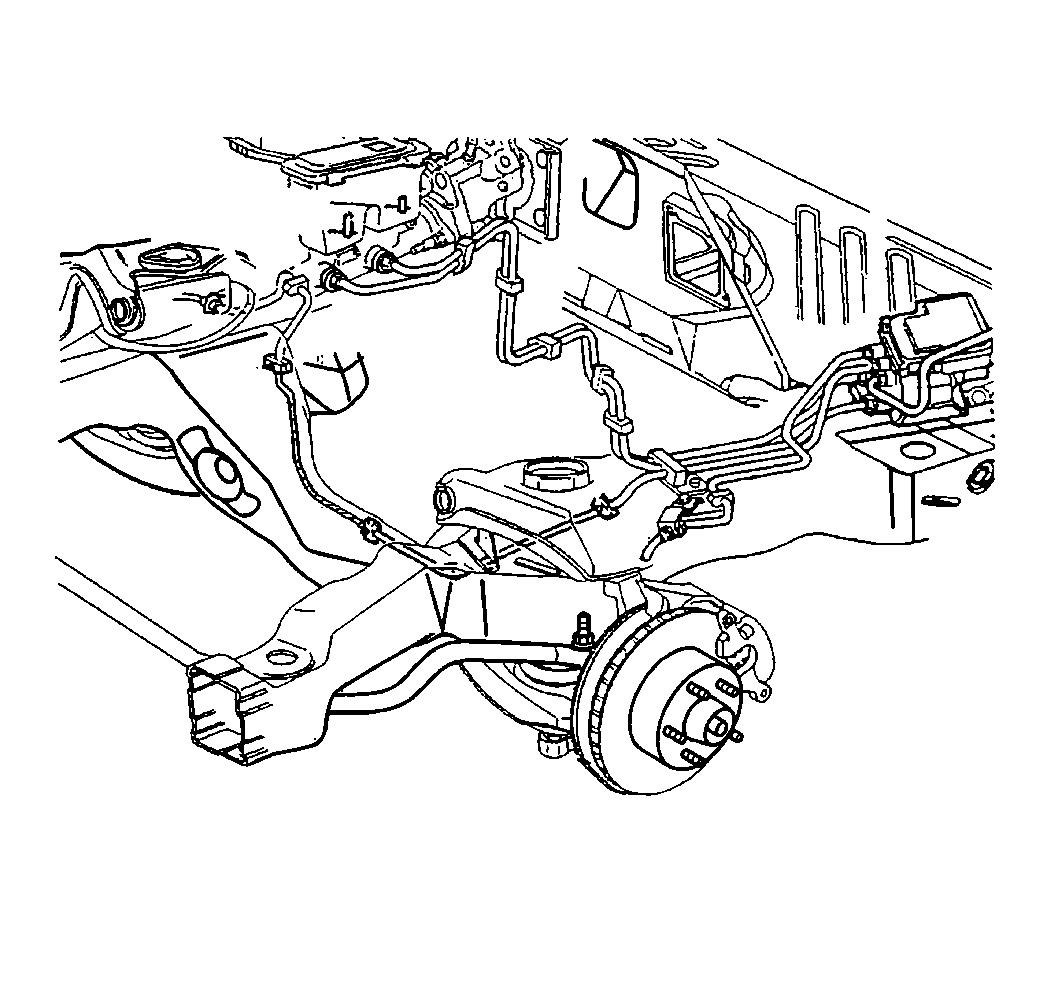
Installation Procedure
- Install the brake pipe retainers as necessary.
- Install the brake pipe to the vehicle.
- Loosely connect the brake pipe nuts.
- Lower the vehicle.
- Bleed the brake system. Refer to Hydraulic Brake System Bleeding .

Caution: Always use double-walled steel brake pipe when replacing brake pipes. The use of any other pipe is not recommended and may cause brake system failure. Carefully route and retain replacement brake pipes. Always use the correct fasteners and in the original location for replacement brake pipes. Failure to properly route and retain brake pipes may cause damage to the brake pipes and brake system resulting in personal injury.
Important: Brake pipes that run parallel to each other must maintain a 6 mm (¼ in) clearance.
Notice: Use the correct fastener in the correct location. Replacement fasteners must be the correct part number for that application. Fasteners requiring replacement or fasteners requiring the use of thread locking compound or sealant are identified in the service procedure. Do not use paints, lubricants, or corrosion inhibitors on fasteners or fastener joint surfaces unless specified. These coatings affect fastener torque and joint clamping force and may damage the fastener. Use the correct tightening sequence and specifications when installing fasteners in order to avoid damage to parts and systems.
Tighten
| • | Tighten the brake pipe to combination valve nuts to 30 N·m (22 lb ft). |
| • | Tighten the brake pipe to brake hose nuts to 17 N·m (13 lb ft). |
| • | Tighten the master cylinder brake pipe nuts to 30 N·m (22 lb ft). |
Brake Pipe Replacement F4WD (Front)
Removal Procedure
- Raise the vehicle. Refer to Lifting and Jacking the Vehicle in General Information.
- Remove the brake pipe retainers as necessary.
- Remove the brake pipe from the vehicle.
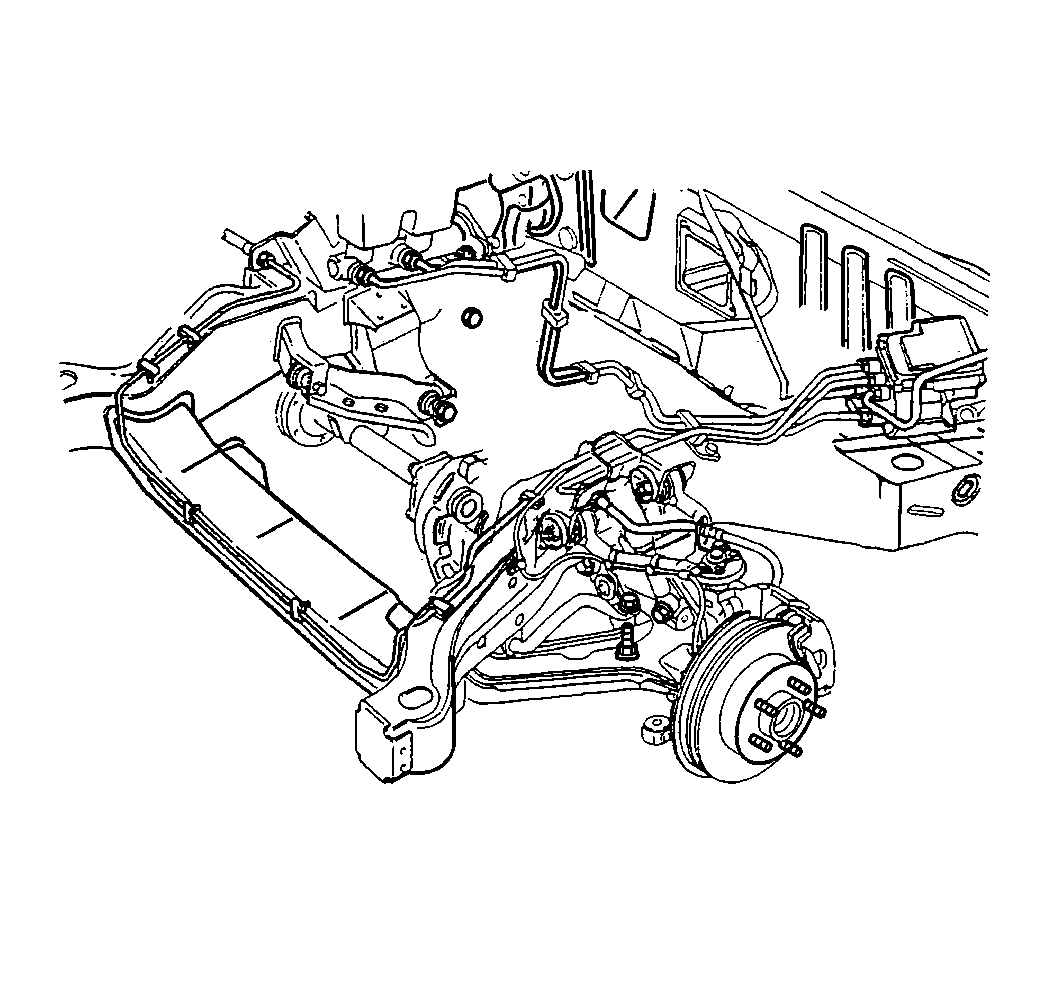
Installation Procedure
- Install the brake pipe retainers as necessary.
- Install the brake pipe to the vehicle.
- Loosely connect the brake pipe nuts.
- Lower the vehicle.
- Bleed the brake system. Refer to Hydraulic Brake System Bleeding .

Caution: Always use double-walled steel brake pipe when replacing brake pipes. The use of any other pipe is not recommended and may cause brake system failure. Carefully route and retain replacement brake pipes. Always use the correct fasteners and in the original location for replacement brake pipes. Failure to properly route and retain brake pipes may cause damage to the brake pipes and brake system resulting in personal injury.
Important: Brake pipes that run parallel to each other must maintain a 6 mm (¼ in) clearance.
Notice: Use the correct fastener in the correct location. Replacement fasteners must be the correct part number for that application. Fasteners requiring replacement or fasteners requiring the use of thread locking compound or sealant are identified in the service procedure. Do not use paints, lubricants, or corrosion inhibitors on fasteners or fastener joint surfaces unless specified. These coatings affect fastener torque and joint clamping force and may damage the fastener. Use the correct tightening sequence and specifications when installing fasteners in order to avoid damage to parts and systems.
Tighten
| • | Tighten the brake pipe to combination valve nuts to 30 N·m (22 lb ft). |
| • | Tighten the brake pipe to brake hose nuts to 17 N·m (13 lb ft). |
| • | Tighten the master cylinder brake pipe nuts to 30 N·m (22 lb ft). |
Brake Pipe Replacement Rear
Removal Procedure
- Raise the vehicle. Refer to Lifting and Jacking the Vehicle in General Information.
- Remove the brake pipe retainers as necessary.
- Disconnect the brake pipe from the wheel cylinder.
- Disconnect the brake pipe from the junction block.
- Remove the brake pipe from the vehicle.
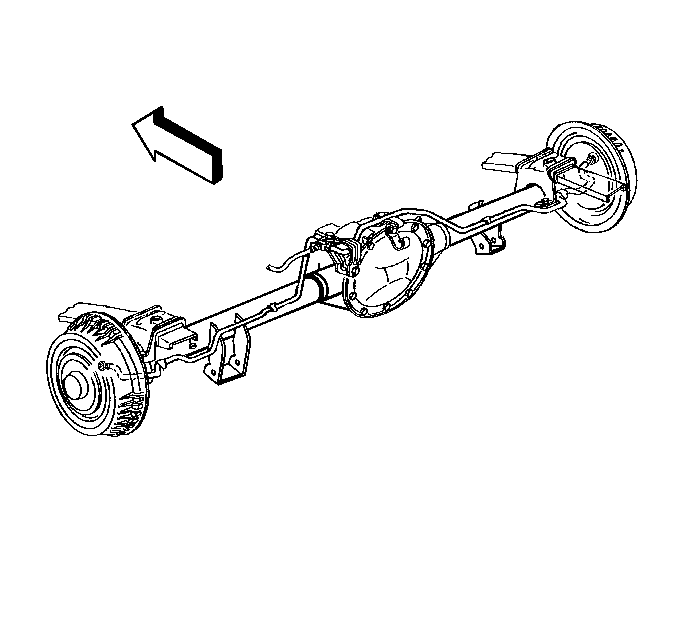
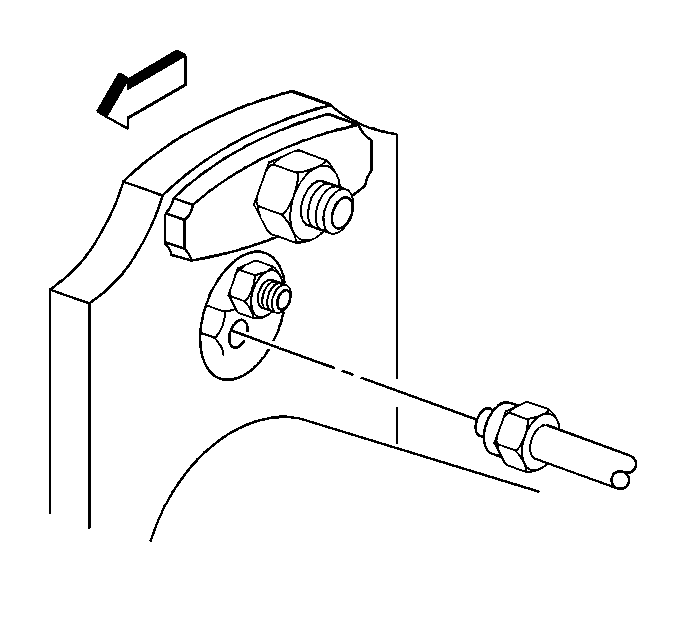
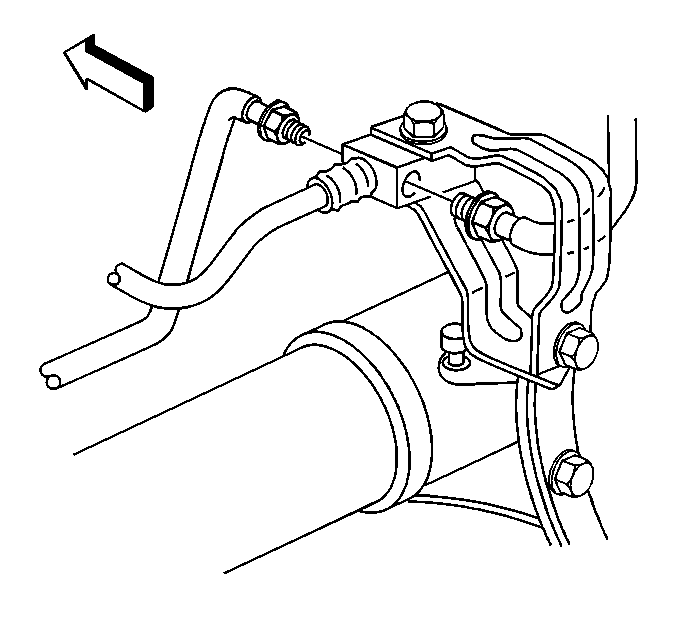
Installation Procedure
Caution: Always use double-walled steel brake pipe when replacing brake pipes. The use of any other pipe is not recommended and may cause brake system failure. Carefully route and retain replacement brake pipes. Always use the correct fasteners and in the original location for replacement brake pipes. Failure to properly route and retain brake pipes may cause damage to the brake pipes and brake system resulting in personal injury.
Important: Brake pipes that run parallel to each other must maintain a 6 mm (¼ in) clearance.
- Install the brake pipe to the vehicle.
- Loosely install the brake pipe nut to the junction block.
- Loosely install the brake pipe nut to the wheel cylinder.
- Install the brake pipe retainers as necessary.
- Lower the vehicle.
- Bleed the brake system. Refer to Hydraulic Brake System Bleeding .


Notice: Use the correct fastener in the correct location. Replacement fasteners must be the correct part number for that application. Fasteners requiring replacement or fasteners requiring the use of thread locking compound or sealant are identified in the service procedure. Do not use paints, lubricants, or corrosion inhibitors on fasteners or fastener joint surfaces unless specified. These coatings affect fastener torque and joint clamping force and may damage the fastener. Use the correct tightening sequence and specifications when installing fasteners in order to avoid damage to parts and systems.
Tighten
Tighten the brake pipe nuts to 17 N·m (13 lb ft).

